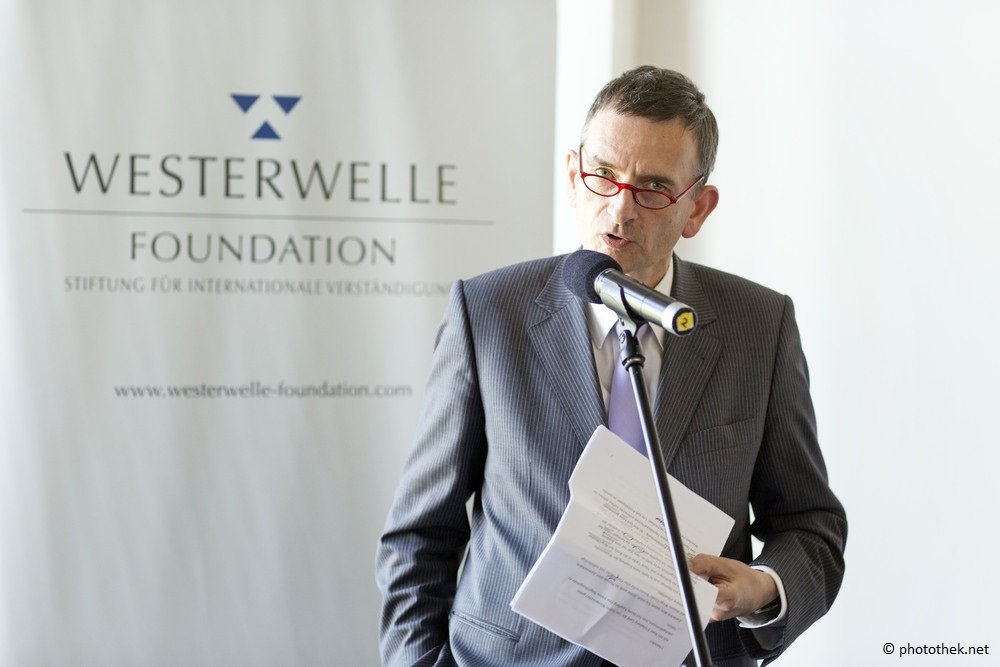Germany, EU have realized they must rely on themselves for security: SWP chief
Volker Perthes says Germany does not try to personalize its foreign relations

TEHRAN - Volker Perthes, director of the Berlin-based Institute for International and Security Affairs (Stiftung Wissenschaft und Politik - SWP), says Germany and other European Union members have realized that they must be more self-reliant to protect their security.
“Germany and the other EU states have realized and also publicly stated that they will have to rely more on themselves for their security,” Perthes tells the Tehran Times in an exclusive interview.
What follows is the full text of interview:
Q: As Angela Merkel clinched a historic fourth term in Germany's federal election and the anti-migrants far-right party Alternative for Germany (AfD) winning its first seats in parliament since World War II, what do you think about the tough road which the chancellor has to face for governing the country?
A: Regarding your question, it should be noted that the AfD is a new party that has only formed in 2013, at first as a rightwing-liberal and Eurosceptic party. They have transformed and taken up strong populist, far-right and partly right-wing extremist positions, and they have now entered the German Bundestag as the third-strongest party.
We do not have a government coalition yet, but the Chancellor will have to face many challenges like the multiple crises in the European Union and in foreign policy, and bickering partnerships with players like the United States.
The chancellor (Merkel) will have to face many challenges like the multiple crises in the European Union and in foreign policy, and bickering partnerships with players like the United States.
Q: What’s your prediction of the relations between the U.S. and Germany as the White House did not immediately congratulate Merkel on her election victory?
A: Well, President Trump did congratulate Chancellor Merkel to her election victory. The German government will certainly try not to personalize the relations between the EU and Germany on the one side and the USA on the other. The USA will remain Europe’s most important international ally. At the same time, Germany and the other EU states have realized and also publicly stated that they will have to rely more on themselves for their security.
On the working level, cooperation between the U.S. administration and the EU members is ongoing and good. On the leadership level, there are more differences with President Trump than there were with any of his predecessors. This includes global issues such as free trade or climate change as well as geopolitical ones. Among the latter, the JCPOA is a major issue where the U.S. President takes a position that none of the other signatories to this important agreement share. And to be very clear here: despite the complicated Brexit negotiations, there is no difference Inbrunst question between the United Kingdom, France and Germany. Also, inside Germany, the parties that are likely to form the new coalition government all agree here on the need to preserve and fully implement the JCPOA.
Q: Some takeaway events are taking place in the European Union such as Brexit, Merkel's rejection of a Turkish membership at the EU, and the refugee crisis, so what is your analysis of the new German government’s stance in the light of the new developments?
Inside Germany, the parties that are likely to form the new coalition government, all agree on the need to preserve and fully implement the JCPOA.
A: The European Union had to face challenges in the past as well, for instance new constitutional and legal frameworks, failed referenda, the Greek and the Euro crisis and others. The refugee crisis of 2015/16 has changed the political debate in Europe and it has led to new parties and a new political landscape in many parts. The Brexit will be a deep cut for the EU but it is yet to see which costs it will bring for the EU and the UK. Turkey is an important NATO ally, but a very complicated partner for the EU, particularly as the current Turkish leadership seems to differ with the EU countries and their governments over fundamental values. The next German government will thus have a lot on its agenda. As always, foreign policy challenges cannot really be planned, because they are largely determined by the actions of others, including players such as the U.S., Russia, North Korea, or Iran for that matter, whose policies aren’t always predictable for us.
Leave a Comment